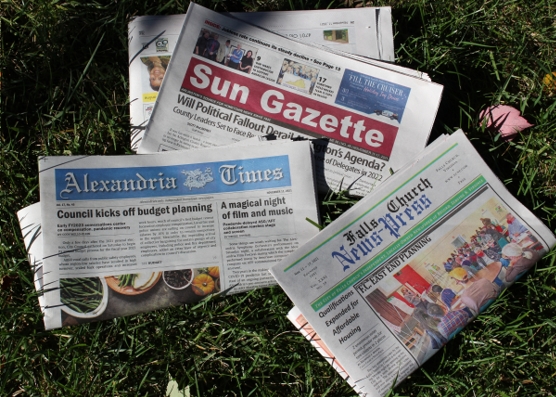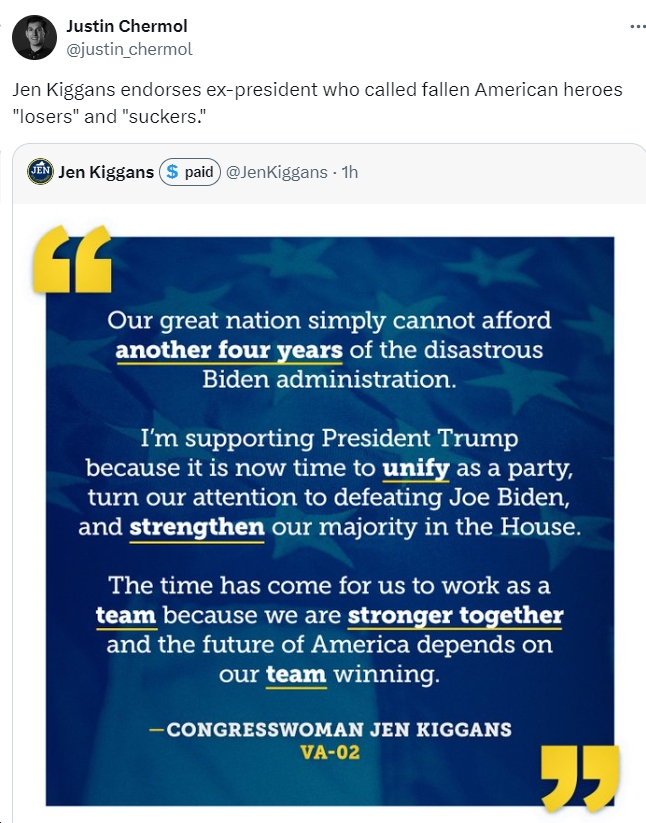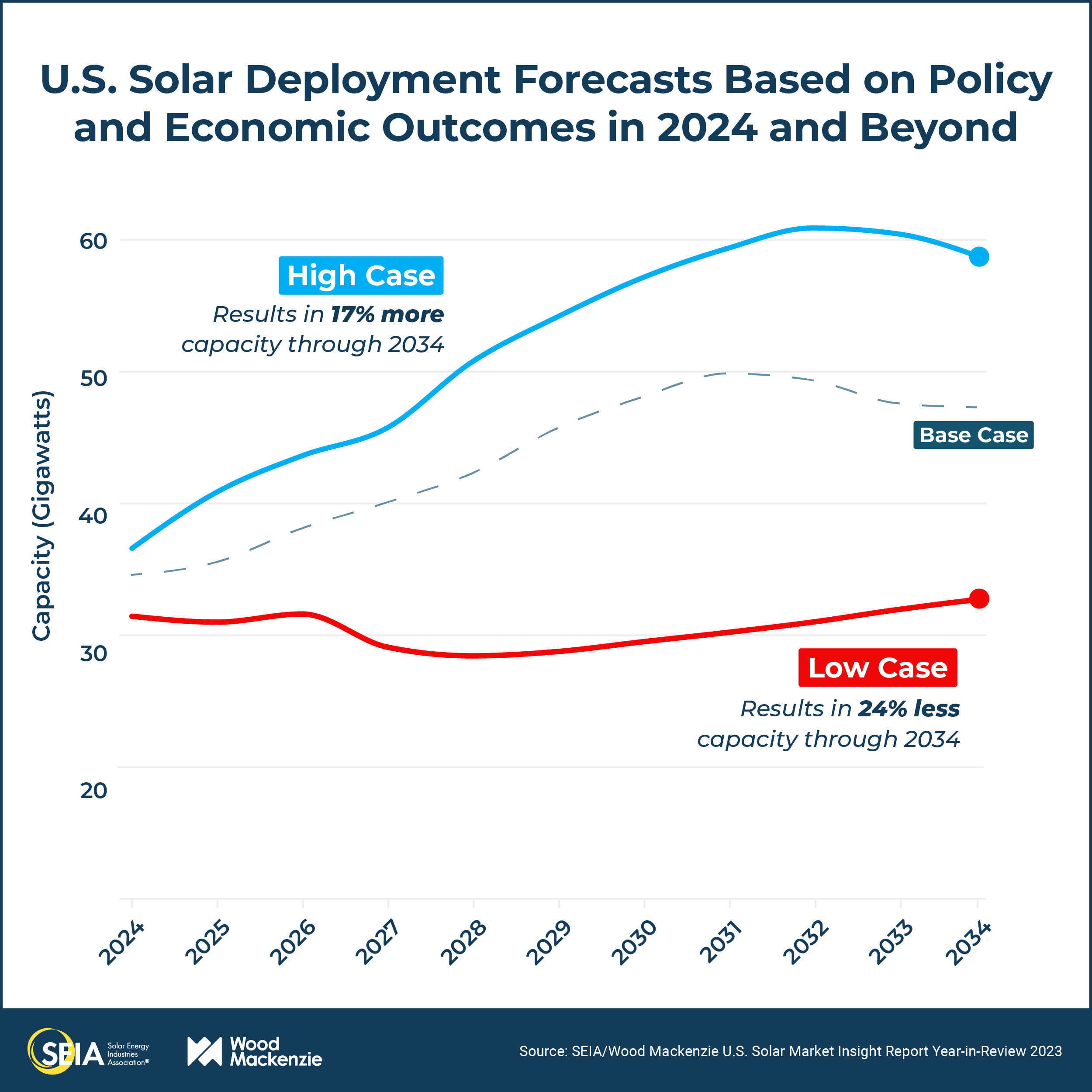by John Seymour, a long-time resident of Arlington, Virginia
In the fall of 1979, I moved to D.C. from Upstate New York to study law. The Washington Post was then still basking in the glory of its justly praised Watergate coverage, which precipitated President Nixon’s impeachment and for which it received a Pulitzer Prize. John Mitchell, the former President’s Attorney General, had just been released from prison on parole a few months earlier, following his conviction and sentencing for obstruction of justice, conspiracy and perjury arising from the Watergate scandal. Nearly everyone my age had watched the Watergate hearings and followed their aftermath and, for many of us, the Post’s coverage served as an exemplar of investigatory reporting in the public interest.
During my years as a student and later, the Post’s deeply reported national stories helped me understand the Washington of politics, power, and intrigue. Even more important to me as a transplant, the Post’s local coverage in its Metro section helped me understand the nation’s capital as a place where people lived, worked, served on juries, fussed about garbage collection, and worried about the quality of neighborhood schools.
In 1979, an issue of the Post cost 15 cents, which even a struggling law student could afford. The paper was, unlike the New York Times and the Wall Street Journal, a distinctly and proudly local/regional publication, found everywhere in D.C., Maryland, and Virginia and almost nowhere else. My fiancée and I (now grandparents) relied on the Post for everything – apartment hunting, and flyer inserts from the local hardware chain – Hechinger — to deal with the roaches, drafts, mildew, and peeling paint plaguing the apartments we could afford. We looked in the Post for sales at Hecht’s and Woodward & Lothrop and, when feeling particularly flush, Christmas-time sales at Garfinkel’s.
Today, a single issue of the Post now costs $3.00, which is nearly the price of a monthly subscription to the daily edition in 1979, with free delivery thrown in. Subscriptions to the print edition peaked long ago in 1993, and the number of subscribers in 2023 has dropped to 140,000, less than one-sixth of its peak. Woodies, Hecht’s, Garfinkel’s, and Hechinger are long gone, as are the Post’s classified section and, in large part, retail print newspaper ads generally. They were the casualties of a brutally competitive retail marketplace that emerged and then metastasized during the rise of the digital age – Craigslist, Amazon, Facebook and NextDoor, among countless other sites.
For newspapers, it turned out, the print model for funding journalism, based on local advertising and heavily-subsidized subscriptions, no longer worked. During the 1990s, advertisers began to abandon newspapers en masse and move to digital media such as Facebook, Google, and YouTube. To make matters worse, free content aggregator sites such as Huffington Post and BuzzFeed routinely re-worked and posted breaking stories that were researched, written and edited at great cost by highly skilled and salaried Post journalists. The product of the Post — superbly reported local, national and international stories — was no longer supported by local advertisers and was, at the same time, being appropriated and monetized by digital freeloaders.
The Crisis in Local Journalism: The Post is not, of course, the only newspaper forced to navigate the highly dynamic and unforgiving market forces that disrupted traditional journalism. Nationwide, the prospects for local journalism have never been more dismal. According to a recent report by the Northwestern University Medill School of Journalism, the nation is estimated to have lost more than 2,900 newspapers since 2005, about 25% of the nation’s total stock of papers and is on track to lose a third by 2025. The roll call of closures has, to date, included around 42 Virginia newspapers, with many more on life support.
Yet, the gloomy numbers tell only part of the story. Newspapers are disappearing, yet no other news source has emerged that comes close to matching print media in quality or usefulness. The Dewitt Wallace Center for Media and Democracy at Duke University found, for example, that “local newspapers significantly outperform local TV, radio, and on-line-only outlets in news production,” both in output and in quality of work. While local newspapers were found to account for nearly 50% of original local news stories sampled in one study, they accounted for only 25% of the outlets.

The loss of newspapers would be tragic in any era. But in this time of national polarization and hyper-partisanship, local newspapers are needed more than ever. Local newspapers help to create and cement democracy by promoting civic engagement, informing citizens about the use and misuse of their tax dollars, increasing overall political knowledge, and rooting out corruption. As local journalism declines, public figures conduct themselves with less integrity. Former President Donald Trump was found, unsurprisingly, to perform far better in counties with the lowest numbers of news subscribers and poorly in areas with heavier circulation, demonstrating that he did worse overall “in places where independent media could check his claims.”
Local Journalism in the Metro Area is Facing the Same Strains. Many papers that have, for decades, served D.C., Maryland and Northern Virginia have closed their doors. The Gazette newspapers in Montgomery and Prince Georges Counties are no longer, and the local Chronicle newspapers are gone, together with the News Messenger and the Northern Virginia Sun. With few exceptions, the surviving local papers are struggling. The venerable Falls Church News-Press has been distributed for free locally for more than 30 years, faced significant financial challenges during the pandemic, and now accurately characterizes itself as “just about the only general news source in the region that still comes out in print.” At the same time, however, it announced the creation of a new digital edition and, asking for reader understanding, cautioned that some content would be, for the first time, placed behind a paywall.
The Sun-Gazette, also a free local print newspaper in northern Virginia for decades under several owners, continues in operation and has been renamed the GazetteLeader, following its purchase by the O’Rourke Media Group. Critics of newspaper consolidation have begun to express concerns, however, about the editorial content and objectivity of local newspapers following their purchase by private equity groups because of their increased emphasis on revenue production and advertising, rather than journalism. The staff of one newspaper recently questioned the acquisition of a competing paper by O’Rourke noting that it found not a “single reference in the O’Rourke Media Group’s communications to journalistic ethics, fact-based news coverage, investigative reporting, or any mission related to news.”
Other critics have observed a decided right-wing editorial slant in newspapers following their acquisition by private investor groups.. Given the historical right-leaning editorial stance of the Sun-Gazette, however, it seems unlikely that — in deep blue Arlington — a further pivot to the right would be in the paper’s long-time economic interest. Nevertheless, some readers were startled to see gun shop advertisements now featured on the paper’s front page.
The recent purchase of the Baltimore Sun by David Smith, executive chairman of the Sinclair Broadcast Group, which leans heavily to the right, is a particularly worrisome sign for local newspapers. Mr. Smith introduced himself to his new employees as one who considered print media to be “meaningless dribble,” crowed that he “had not read a newspaper in 40 years,” and urged reporters to increase their coverage of “crime and government dysfunction — themes that resonate deeply with Sinclair’s right-wing base.
A few digital news sites have emerged locally in recent years, yet these sites also fight significant economic headwinds and are often small and under-resourced. DCist, the local news site operated by the area’s National Public Radio affiliate, WAMU, was shuttered a few weeks ago with the dismissal of nearly all of its reporters. ArlingtonNow, the hyper-local digital news site covering Arlington, has attracted a significant viewership since its inception. It continues to post some deeply-reported and insightful stories chronicling the “urban village’s” enviably high rates of participation in local government and community life, while also shining light on the fractures that arise when affluent homeowners are better positioned to participate in and influence local decisions than others. Nevertheless, local news remains, as ArlNow concedes, a “tough business” and the long-term profitability of local digital media as an industry remains uncertain.
The Washington Post’s Metro Coverage: During its decades as a largely local/regional paper, the Post maintained a large and talented Metro staff and took very seriously its role to inform subscribers about their communities. Nevertheless, Post executives, both before and after the Post’s sale to billionaire Jeff Bezos, made no secret of their desire to transform the Post into a third “newspaper of record,” in competition with the New York Times and the Wall Street Journal and with a stronger emphasis on national and international news to be delivered to a broader audience. Since its acquisition by Mr. Bezos, the Post’s intent to become a mass digital paper with a subscriber base of the entire “English-speaking world” has become more engrained. Executives at the Post are convinced that the Post’s future lies in digital subscriptions and the Post has invested heavily in technology and tools to help its reporters become fluent in the language of the digital age.
In the past several months, with losses rising and estimated to reach the astounding figure of $100 million during 2023 alone, the Post announced a winnowing of its staff and proposed to eliminate 240 jobs. The Metro section was disproportionately affected, with one-quarter of Metro staff expected to take buy-outs. Over the past few months, a number of long-time and popular local reporters and columnists have departed the Post. A few months earlier the the Post eliminated its editorial page previously devoted entirely to Local Opinions submitted by Virginia, Maryland and District readers.
To many observers of the state of journalism today, the reduction in Metro represents a reasoned and sound fiscal response to an inevitability. The print edition, read largely by locals, is hemorrhaging readers yet digital subscriptions have soared, reportedly reaching more than 3.0 million during then-President Trump’s first term, although they are widely believed to have declined recently. Still, digital subscriptions continue to exceed print subscriptions by a factor of 10 or more. Given the sharply decreasing print subscribers, the Post’s relative neglect of Metro and focus on reaching a mass audience is seen as the most rational strategy to ensure the paper’s long-time survival, and perhaps reinvention as a digital news powerhouse. After all, local news draws readers from a relatively small area yet is still expensive to gather. In the absence of local ads to pay for local reporters, local news is widely viewed as a journalistic “loss leader.”
But the shrinking of Metro imposes costs on the community. Although Metro staff still cover major political stories in Richmond, Annapolis, and the District, fewer stories cover city and county governments and their administrative agencies and courts which are, after all, responsible for enacting and implementing laws, policies and programs that greatly affect neighborhood quality of life. In northern Virginia alone, developments central to civic life attract little attention from the Post’s journalists — budget and tax hearings, development proposals and changes to major transportation routes, local experiments in restorative justice, aging-in-place initiatives, and homelessness-reduction efforts, crises in childcare availability and affordability, economic inequality and housing availability, among many others. Information of that kind is the glue that holds communities together, creates shared values, and a shared view of the facts that, in turn, establish the agenda for policy debates and, ultimately, social and political change locally.
To many older readers, the Post’s efforts to attract a mass digital audience also seem, at times, to promote writing and story choices that are a poor fit with the long-standing Post’s institutional style. The highly literate, thoughtful, often intentionally understated Post mode of writing emphasized objectivity and balance, and conveyed credibility and trustworthiness. It was a paper crafted by writers for readers. It has now been lightened, made more breezy, and trendy. But one of the core strengths of the Post has always been its voices — writers who understood their craft, were passionate reporters and columnists, knew their local audience and wrote for them. The Post printed stories that made readers sit up, ask themselves “who wrote this?,” and look to the byline. The essayist Henry Allen helped readers understand the City and the chasm between the K Street power center of powerful lobbyists and consultants and Anacostia East, filled with residents who wielded no power at all. Henry Mitchell’s (the Earthman) local gardening columns read like those E.B. White might pen, if wielding a trowel. Margaret Sullivan (now with the Guardian) was an early, frequent, and eloquent champion of local journalism itself. The Post’s celebrated theatre critic, Peter Marks, recently accepted a buyout, and his arts reviews were beautifully written critiques of local productions that helped to spur the development and growth of the region’s now thriving arts community.
With new and fancy graphics and video and “search engine optimization features,” the Post is plainly mastering the story-telling tools of the digital age. But what stories are being told? Many of the stories appearing in the Post today and directed at a mass audience have a homogenizing, flattening effect. They too often mimic the tired tropes that appear everywhere and every day on the web, celebrating self-care, pop culture, hip travel adventures, and entertainment of all sorts. Some readers may find distraction in the Style section’s deep dives into any event (however tangential or imagined) connected to Taylor Swift, or the Post’s many pieces on how to best navigate Disney World, or the dining options in the newest, biggest and most extravagant cruise ship afloat, or Local Living landscaping pieces by freelancers residing elsewhere, with only the dimmest understanding of the region’s climate, and trotting out the same stale advice about fool-proof houseplants that are found in magazines in every dentist’s waiting room. And many of the new pieces, I suspect, do achieve enviable metrics, measured by page views, unique visitors, and time on-site — the currency of the web. For long-time Post readers, however, they all too frequently fail to engage with the unfamiliar, or to surprise, and have little to do with the place in which they live. Those readers may begin to wonder whether, in 5 to 10 years, there is much in the Post that cannot be found, for free, elsewhere.
Conclusion: In focusing on scale and the wooing of a mass digital audience, the Post may eventually abandon its irreplaceable role as a reliable and uniquely knowledgeable source of local news. The fiercely loyal (or foolishly stubborn) dwindling and aging print readership will still subscribe, of course. And it remains true that Post reporters still generate some of the best national and international journalism written today. And local coverage, although diminished, still helps to fill an increasingly empty civic space. Two Metro columnists remain, at least for now. Petula Dvorak still sends in her brave dispatches, reporting on local skirmishes in the culture wars, the struggles of single-parent families, and neighborhood gun violence. Theresa Vargas still writes stubbornly about the politically fraught, but critically important, issues of class and race locally, and the struggles of the poor and those with disabilities. They continue to examine and critique local urban culture without demonizing or caricaturing it.
In ending his decades-long Post column, the widely-admired local columnist Marc Fisher wrote that his pieces were, very simply, an invitation to the reader for a “relationship with a reporter who would take you to places and introduce you to people you might not know firsthand, but were part of the place you called home.” That invitation has not yet been fully withdrawn but the shrinking of Metro suggests that local readers are no longer truly prized. The Post may eventually profit from its courting of a mass digital audience, but if local coverage continues to be shortchanged, the loss will be felt deeply by the community that has hosted and treasured the paper for decades. And the Post may find that it has sacrificed something much more important than profits— after all, even local Democracy Dies in Darkness.









